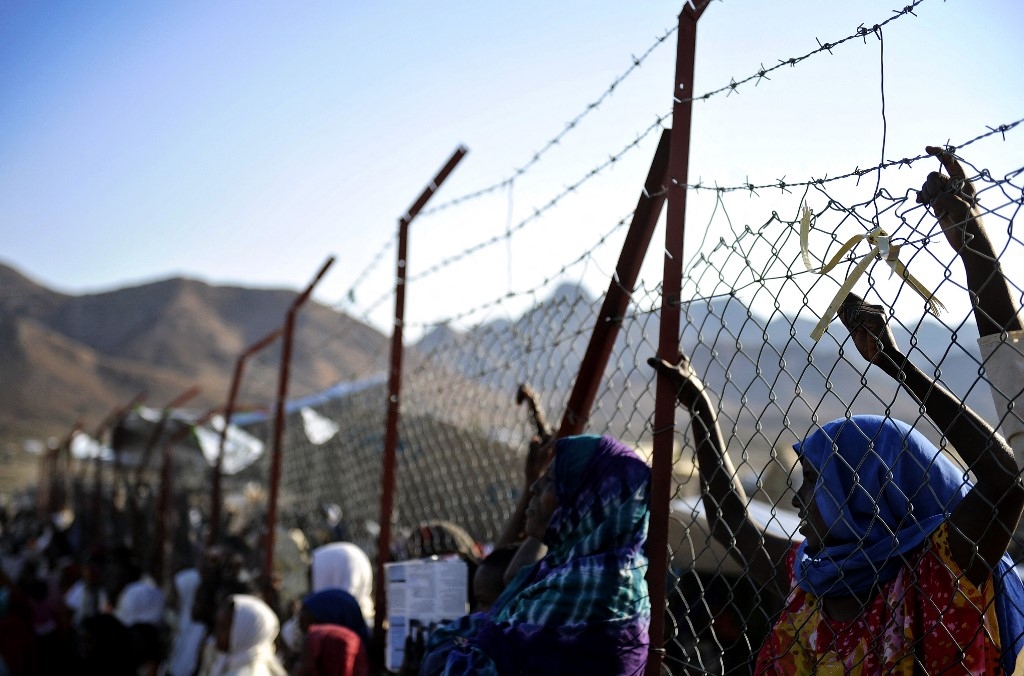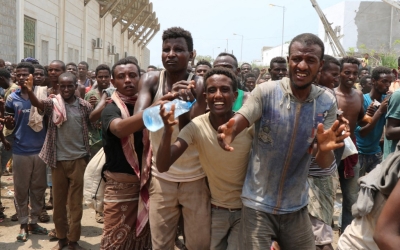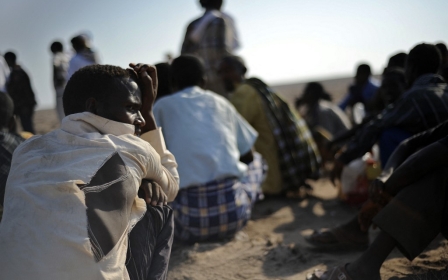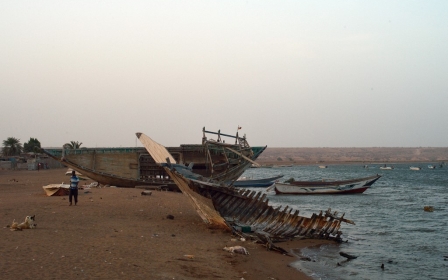Yemen's Houthis express 'deep regret' for Sanaa migrant centre fire

The Houthi rebel movement in Yemen expressed "deep regret" on Wednesday for the deaths of dozens of migrants in the capital Sanaa on 7 March, after reports emerged that Houthis fired projectiles into a migrant detention centre, sparking a fire.
A senior Houthi official said that the rebels would open an investigation into the incident that killed at least 44 migrants.
"We express our deep regret over the accidental incident at the migrant detention centre in Sanaa," said Hussein al-Azizi, according to the rebel's al-Masirah channel.
"The victims are 44 migrants, and the wounded are 193, most of whom have gone to hospital, and there is an investigation into the reasons for the incident."
The UN called for an investigation into the incident on Tuesday, after reports began to emerge that Houthi guards fired "projectiles" into an overcrowded detention centre.
Human Rights Watch on Tuesday said five survivors who spoke to the rights group saw Houthis fire at least two projectiles - one smoke bomb and a projectile that caused the fire - as migrants were protesting living conditions inside the detention centre.
Video analysed by HRW also confirmed that some migrants could not escape after being overcome by smoke from the fire, and that walls had to be broken down to let those inside escape the blaze.
Last week, survivors told Middle East Eye that Houthi security guards fired unidentified projectiles into the overcrowded holding facility.
A two-minute clip given to MEE showed the charred remains of dozens of victims, most of whom were reportedly Ethiopian.
HRW also confirmed testimony given to MEE that the holding facility was dangerously overcrowded and housed hundreds of mainly Ethiopian migrants.
Survivors were taken to government-run medical facilities, which prevented outsiders from entering.
Rights groups have urged Houthis to give UN agencies access to medical facilities holding injured migrants, as relatives fear the worst for their loved ones stuck in Yemen.
Siraj Mamo, who hails from the Ethiopian town of Dukem, has not heard from his nephew, Murad Kamal, for more than a week.
For the past three months, Kamal lived in Sanaa as an undocumented worker. He had told his family that he would try to flee Sanaa as a crackdown on undocumented migrants intensified.
Thousands have used smugglers to cross the Red Sea from East Africa to find work in Saudi Arabia. Yemen is the only way for them to get to Saudi Arabia, with many also using the war-stricken country as a transit point to save up money before going into the oil-rich kingdom.
But when Covid-19 first struck, Saudi Arabia closed its borders, leaving hundreds stranded in Yemen. Some took the perilous journey back to East Africa. Others had no choice but to stay in Sanaa, hoping for the Saudi border to open or to be repatriated.
Middle East Eye propose une couverture et une analyse indépendantes et incomparables du Moyen-Orient, de l’Afrique du Nord et d’autres régions du monde. Pour en savoir plus sur la reprise de ce contenu et les frais qui s’appliquent, veuillez remplir ce formulaire [en anglais]. Pour en savoir plus sur MEE, cliquez ici [en anglais].





